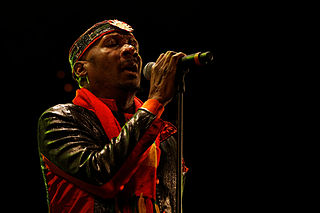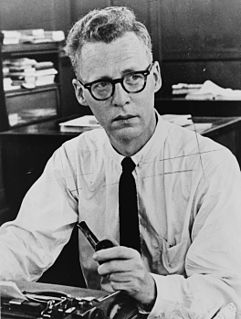A Quote by Reiner Stach
By the time Kafka was seven or eight years old, he already had a relatively dark view of the world derived from experiences in his own family. This told him that the world was organized in a strictly hierarchical manner and that those on the top were allowed to mete out punishment in any way they chose. They were entitled to leave those on the bottom uninformed about the rules to which they subscribed; they weren't even required to follow their own rules - this is how Kafka described it in his later Letter to My Father.
Quote Topics
Related Quotes
Kafka is one of my very favorite writers. Kafka's fictional world is already so complete that trying to follow in his steps is not just pointless, but quite risky, too. What I see myself doing, rather, is writing novels where, in my own way, I dismantle the fictional world of Kafka that itself dismantled the existing novelistic system.
In my own field, x-ray crystallography, we used to work out the structure of minerals by various dodges which we never bothered to write down, we just used them. Then Linus Pauling came along to the laboratory, saw what we were doing and wrote out what we now call Pauling's Rules. We had all been using Pauling's Rules for about three or four years before Pauling told us what the rules were.
Oshima's silent for a time as he gazes at the forest, eyes narrowed. Birds are flitting from one branch to the next. His hands are clasped behind his head. "I know how you feel," he finally says. "But this is something you have to work out on your own. Nobody can help you. That's what love's all about, Kafka. You're the one having those wonderful feelings, but you have to go it alone as you wander through the dark. Your mind and body have to bear it all. All by yourself.
There were times when it appeared to Dorian Gray that the whole of history was merely the record of his own life, not as he had lived it in act and circumstand, but as his imagination had created it for him, as it had been in his brain and in his passions. He felt that he had known them all, those strange terrible figures that had passed across the stage of the world and made sin so marvellous, and evil so full of subtlety. It seemed to him that in some mysterious way their lives had been his own.
Obviously I've been reading Kafka for a long long time, since I was really young, and even before I ever read him I knew who he was. I had this weird sense that he was some kind of family. Like Uncle Kafka. Now I really think of him that way, the way we think about an uncle who opened up some path for being in a family that otherwise wouldn't have existed. I think of him that way as a writer and a familial figure.
Our heroes are simple: they are brave, they tell the truth, they are good swordsmen and they are never in the long run really defeated. That is why no later books satisfy us like those which were read to us in childhood - for those promised a world of great simplicity of which we knew the rules, but the later books are complicated and contradictory with experience; they are formed out of our own disappointing memories.
This brings me back to the image of Kafka standing before a fish in the Berlin aquarium, a fish on which his gaze fell in a newly found peace after he decided not to eat animals. Kafka recognized that fish as a member of his invisible family- not as his equal, of course, but as another being that was his concern.
If you go to a master to study and learn the techniques, you diligently follow all the instructions the master puts upon you. But then comes the time for using the rules in your own way and not being bound by them....You can actually forget the rules because they have been assimilated. You are an artist. Your own innocence now is of one who has become an artist, who has been, as it were, transmuted.... You can't have creativity unless you leave behind the bounded, the fixed, all the rules.
By adherence to a special set of rules, the child of the shabby-genteel can sometimes leap across the time which has passed by his family and function in the real world without doing violence to the hopes his mother held out for him. But those who cannot live within this pattern are the freaks and poets, and they travel a different road to peace.
I guess I will say, going back to the Judaism questions, there are mental reflexes or patterns that I think of as Jewish in my own feelings about mysticism and theology.Franz Kafka is someone I very much revere. If I believed in holy texts I'd go to him as a touchstone. Not that I read Kafka all the time at this point. In a way, this is what I most want to talk about and it's the hardest to talk about.
In the Small group the individual can know the effects of his actions on his several fellows, and the rules may effectively forbid him to harm them in any manner and even require him to assist them in specific ways. In the Great Society many of the effects of a person's actions on various fellows must be unknown to him. It can, therefore, not be the specific effects in the particular case, but only rules which define kinds of actions prohibited or required, which must serve as guides to the individual.
































